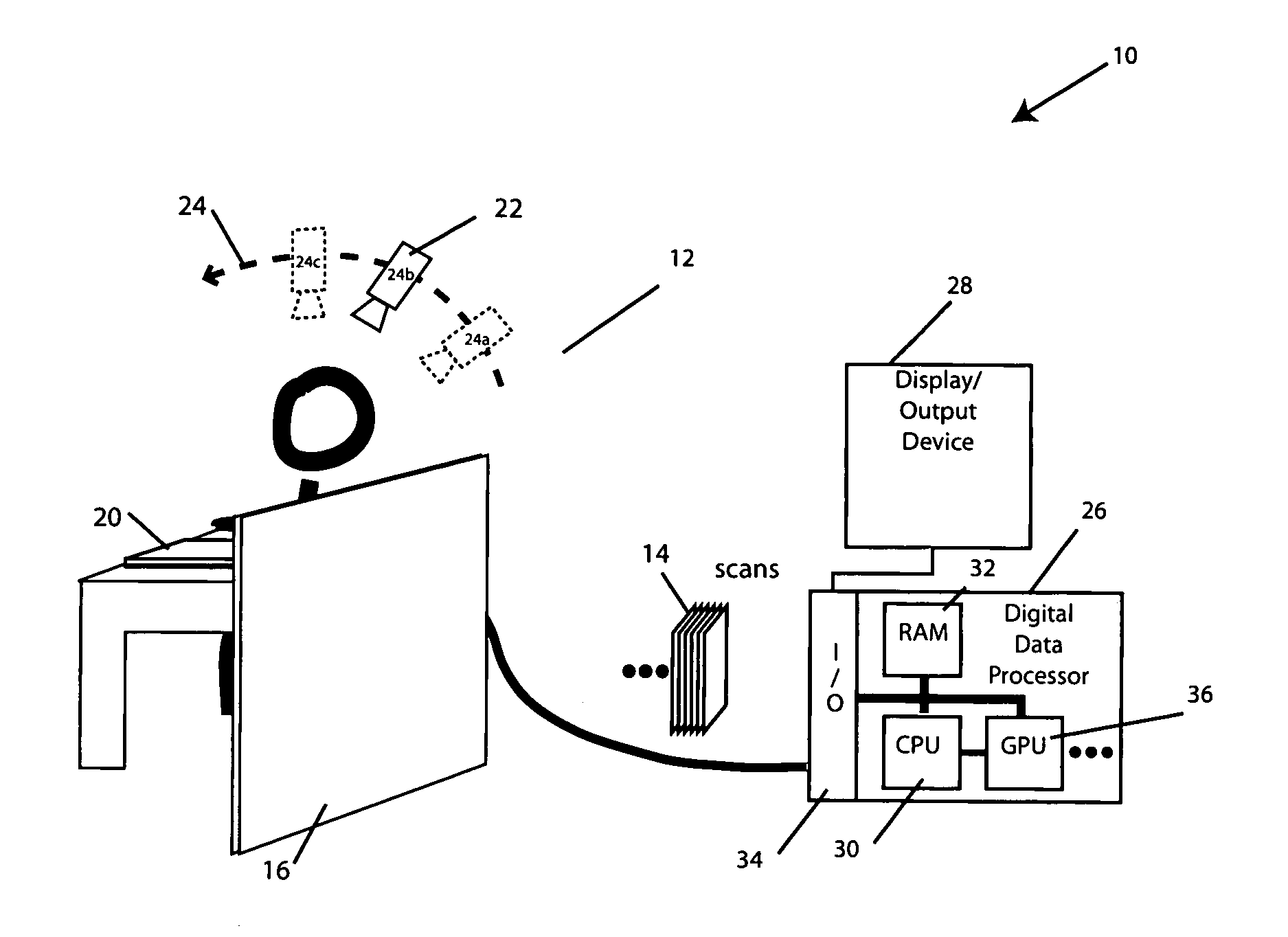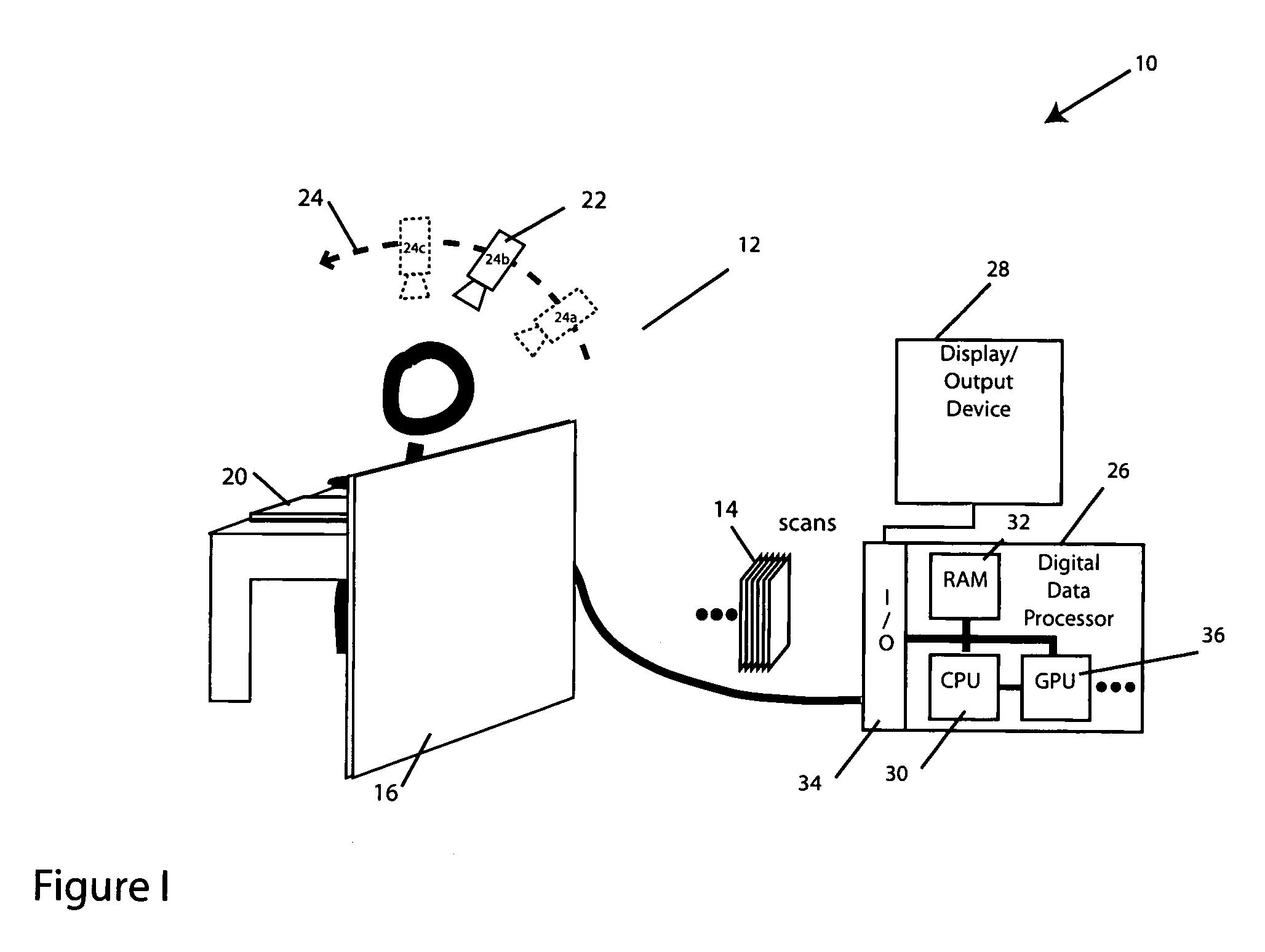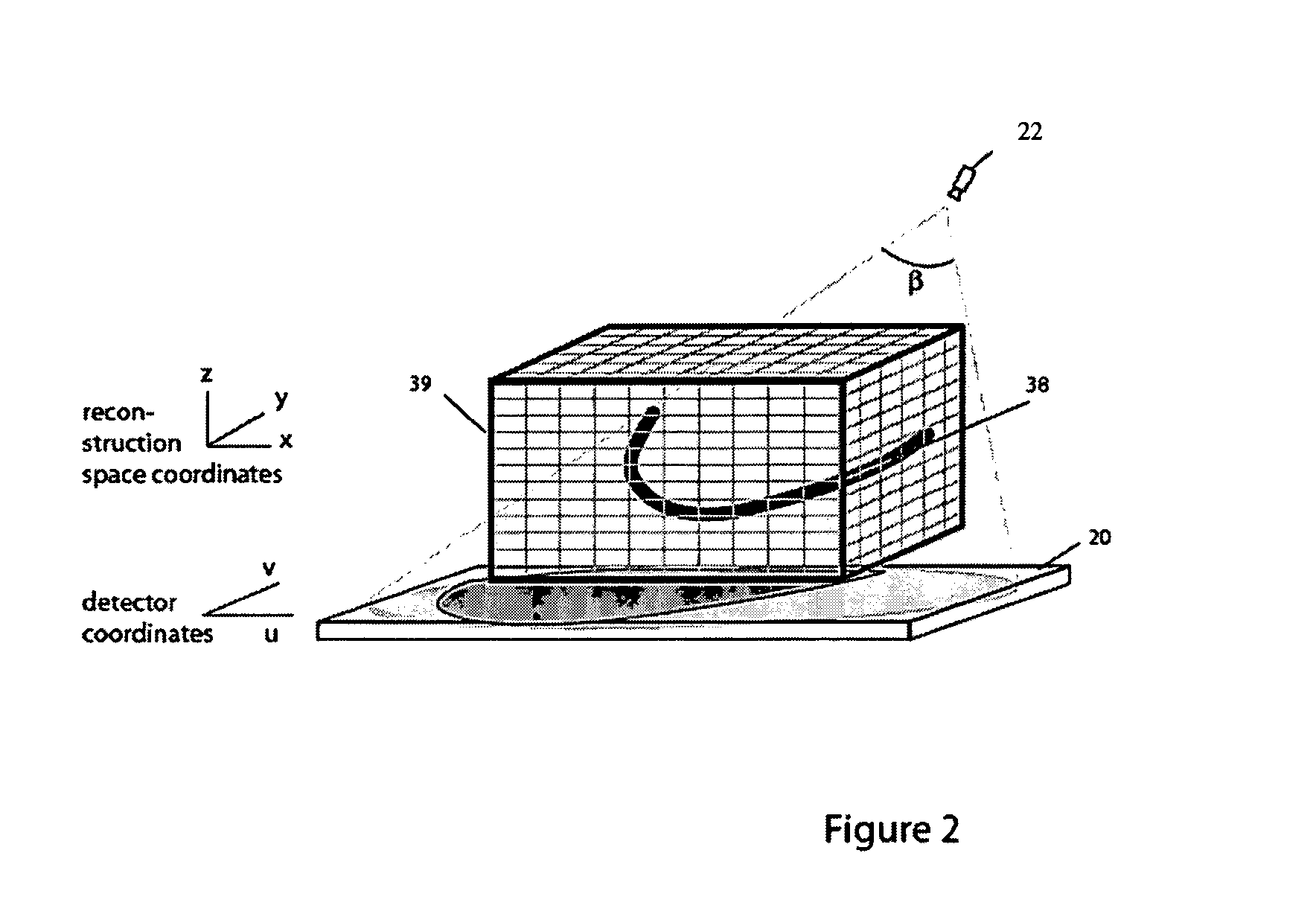Methods and apparatus for back-projection and forward-projection
a technology of forward projection and back projection, applied in the field of digital data processing, can solve the problems of limited applicability high computational costs, and high cost of prior art solutions for determining back projections, and achieve the effect of fewer computational resources and faster performan
- Summary
- Abstract
- Description
- Claims
- Application Information
AI Technical Summary
Benefits of technology
Problems solved by technology
Method used
Image
Examples
Embodiment Construction
[0024]The invention provides improved methodologies and apparatus for forward-projection and back-projection that reduce the time and processing power required to reconstruct three-dimensional volumetric representations, e.g., from a series of two-dimensional measured projection images.
[0025]The invention has application, for example, in medical imaging and the embodiment described below is one such application: a tomosynthesis mammography system, which is based on maximum likelihood estimation maximization (MLEM) algorithm. It will be appreciated that the improved forward-projection and back-projection methodologies and apparatus described herein have application in computed tomography (CT), positron emission tomography (PET), single photon emission computed tomography (SPECT), and other medical imaging applications, as well as in reconstruction applications outside the medical realm, whether based on MLEM or otherwise.
[0026]Turning to the illustrated embodiment, FIG. 1 depicts a m...
PUM
| Property | Measurement | Unit |
|---|---|---|
| reconstruction imaging | aaaaa | aaaaa |
| volume | aaaaa | aaaaa |
| imaging | aaaaa | aaaaa |
Abstract
Description
Claims
Application Information
 Login to View More
Login to View More - R&D
- Intellectual Property
- Life Sciences
- Materials
- Tech Scout
- Unparalleled Data Quality
- Higher Quality Content
- 60% Fewer Hallucinations
Browse by: Latest US Patents, China's latest patents, Technical Efficacy Thesaurus, Application Domain, Technology Topic, Popular Technical Reports.
© 2025 PatSnap. All rights reserved.Legal|Privacy policy|Modern Slavery Act Transparency Statement|Sitemap|About US| Contact US: help@patsnap.com



